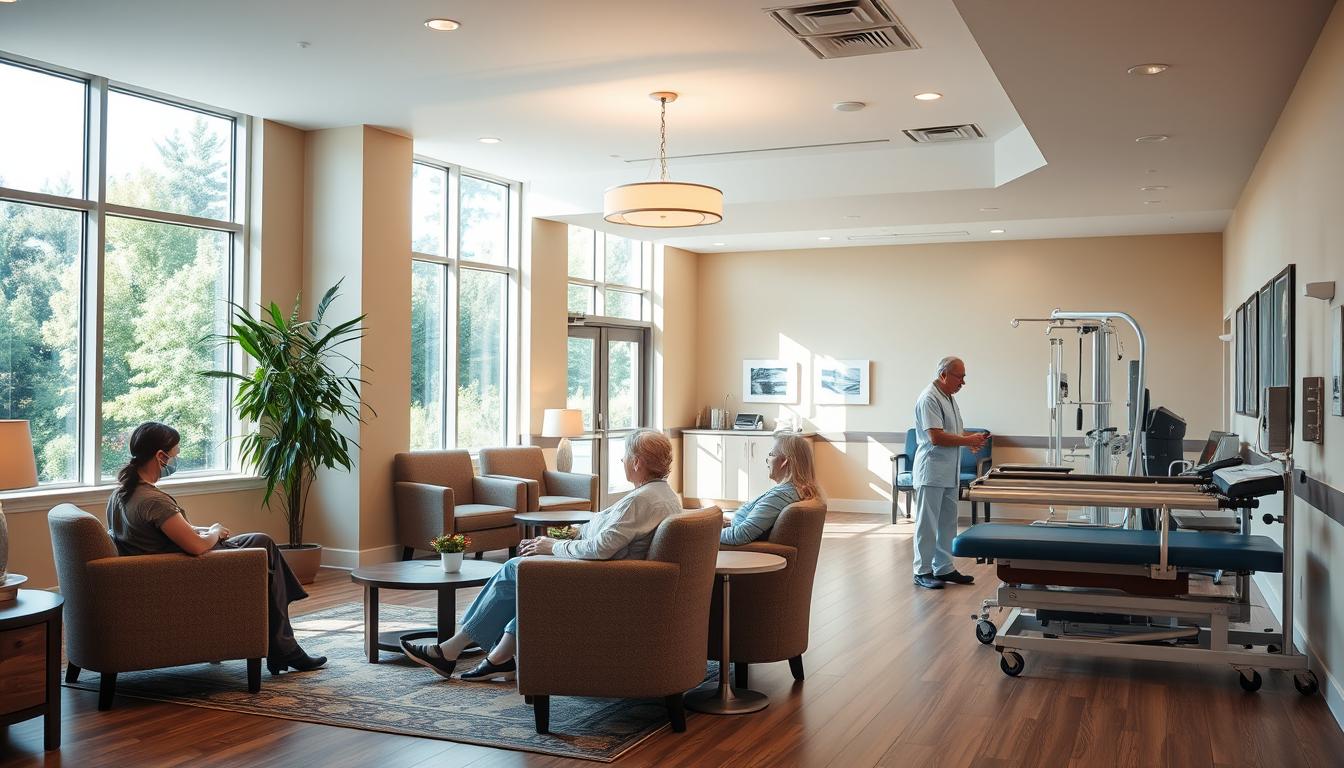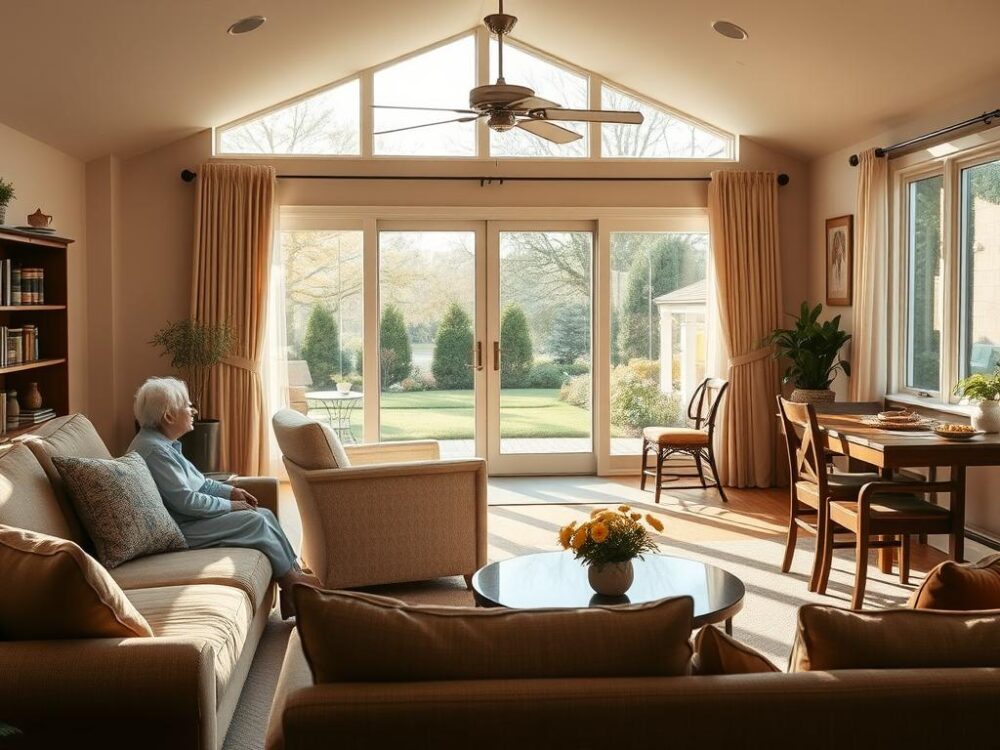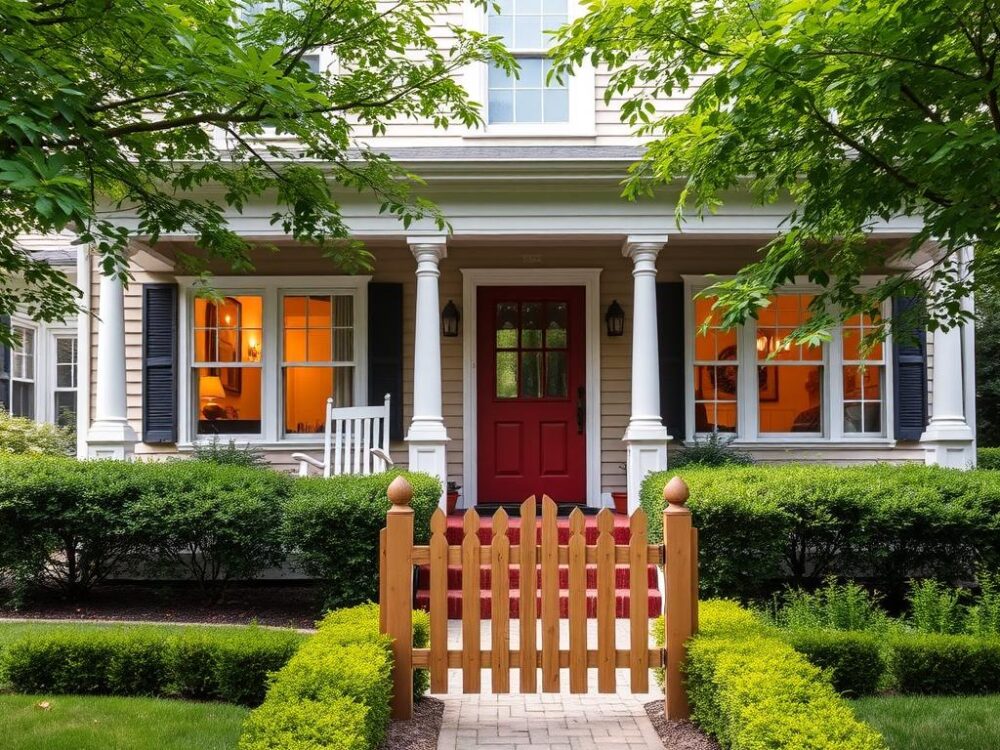
Senior Health Care Services: Expert Support for Elders
October 2, 2024
Compassionate Senior Care Boston | Expert Help
October 2, 2024Did you know that nearly 90% of seniors want to stay in their homes for as long as possible? This highlights the importance of compassionate elderly care services, which assist seniors in maintaining their independence and preserving their dignity.
As the population ages, finding quality care for seniors becomes increasingly crucial. Many providers have assisted seniors for years, particularly in Greater Boston.
These services encompass 24-hour care for seniors with significant health concerns, ensuring that your loved ones receive the best care and attention.
Extended Home Care Services is one of the leading home care providers in the Boston area. It has a longstanding commitment to delivering high-quality in-home care. Its Safe and Steady Fall Prevention program helps reduce the risk of injuries in older adults, providing families with peace of mind.
Numerous options are available nearby if you’re seeking care for your loved ones. These services include personal care and specialized dementia care, all intending to enhance seniors’ lives and preserve their independence and dignity.
Understanding the Need for Compassionate Elderly Care
The ageing population has led to a higher need for senior care services. More people are taking on caregiving roles for their elderly loved ones. This shows how vital compassionate care is in senior living environments.
The Growing Demand for Senior Care Services
Geriatric care needs are increasing worldwide because of better healthcare and longer lives. This change has led to a big increase in the need for caregivers for the elderly. Family caregivers often struggle to balance their caregiving duties with their personal lives, leading to stress and fatigue.
Importance of Compassion in Elderly Care
Compassionate care is key to improving the lives of seniors. It can boost mental health, increase happiness, and lower stress. Caregivers who show empathy and understanding help seniors maintain their independence and self-worth.
Challenges Faced by Aging Individuals and Their Families
Aging individuals and their families face many challenges in finding the right care. These include:
- Managing health issues and medications
- Ensuring safety and independence
- Balancing caregiving responsibilities with personal life
- Developing practical caregiving skills for daily activities
To tackle these challenges, a holistic approach to caregiving is needed. This means focusing on both the physical and emotional well-being of elderly loved ones, especially those with dementia. Regularly reviewing and updating care plans is key to meeting the changing needs of seniors.
Types of Elderly Care Services Available
Knowing your care options is key as you age. Boston has many services for seniors and their families. These range from in-home care to living facilities, meeting different needs and preferences.
Home health care is a top pick. It allows seniors to receive care at home. They receive help with personal care, meals, and managing meds.
Assisted living facilities offer more support. They have a community feel, and care is available all day. Seniors get help with daily tasks but still maintain some independence.
Nursing homes are for those needing constant medical care. They offer skilled nursing and help with recovery from illnesses or surgery.
Adult daycare centres are great for seniors with family caregivers. They provide daytime care, social activities, and health checks, allowing caregivers to take a break or work.
- Home-Delivered Meals Program
- Senior Community Service Employment Program
- CalFresh Healthy Living program
- Dignity At Home Fall Prevention Program
Keep in mind that care choices vary by county in California. It’s smart to plan for future healthcare needs, as life can change quickly.
In-Home Care: Maintaining Independence and Comfort
In-home care allows seniors to age comfortably at home. It offers vital support while maintaining their independence. Many seniors like to stay in their own homes as they age, making in-home care a great choice.
Personal Care Assistance
Personal care is key in in-home services. Caregivers help with bathing, dressing, and grooming, ensuring seniors stay clean and feel their best.
They also help with moving around and using the bathroom. This is done based on each person’s specific needs.
Companionship and Emotional Support
Companionship services are crucial for seniors’ quality of life. Caregivers offer emotional support, engage in conversations, and participate in activities with their clients.
This social interaction helps fight off loneliness and isolation. These are big challenges for many ageing adults.
Household Management and Meal Preparation
In-home care also includes household tasks. Caregivers help with cleaning, laundry, and grocery shopping. They also prepare meals, ensuring seniors eat well.
These services keep homes clean and safe. They also support seniors’ overall health and well-being.
When looking into in-home care, think about what you need. Ask for referrals to find trustworthy caregivers or agencies. Whether you pick a big agency or a solo provider, in-home care can significantly enhance seniors’ lives.
Assisted Living Facilities: A Supportive Community Environment
Assisted living facilities are excellent for seniors who need daily help but don’t need constant medical care. They offer personal care, meals, and social activities in a cosy setting. These places can be old homes or schools, meeting different tastes.
Residents live in private rooms but share common areas. These communities have 25 to over 100 seniors, balancing privacy and social life. They provide 24-hour support, manage meds, and handle housekeeping, transport, and laundry.
People move to assisted living for many reasons. A survey found that 40% started looking after a medical issue or a fall. Other reasons include poor nutrition, frequent bruises, messy homes, and loneliness.
When picking an assisted living place, think about these things:
- Staff levels and interactions
- Overall atmosphere
- Facility cleanliness and safety
- Meal quality
- Available activities
Moving to assisted living can be challenging. Pack early, stay active, and be patient with yourself to make it easier. It takes time to get used to new people and places.
Assisted living places often offer therapy services, which are covered by Medicare. Social activities help seniors stay physically and mentally healthy, making them a good choice for a supportive living space.
Specialized Care for Seniors with Dementia and Alzheimer’s
Seniors with memory disorders need special care to live well. Memory care facilities have programs for Alzheimer’s and dementia. They offer a safe place and care plans made just for each person.
Memory Care Programs
Memory care programs aim to keep minds active. Caregivers use activities that match seniors’ interests, helping keep their minds sharp and boosting their happiness.
Safety Measures and Cognitive Stimulation
Keeping seniors safe is a big deal in Alzheimer’s care. Memory care places have secure areas to stop wandering. They also have activities to keep their minds active. Exercise, social time, and brain games are essential.
Family Support and Education
Family support is critical in caring for dementia patients. About 70% of people with dementia live at home, cared for by family or friends. Memory care places offer help and education for families and help long-distance caregivers, who comprise 15-20% of dementia caregivers.
Good Alzheimer’s and dementia care focuses on talking openly with families. They also train their staff well. This creates a caring space for both residents and their families.
Skilled Nursing and Rehabilitation Services

Skilled nursing facilities are key for seniors with complex health needs. They offer specialized therapies and care from nurses and other health experts. Services include physical, occupational, and speech therapy, wound care, and monitoring vital signs.
Rehabilitation services help seniors recover from surgeries, injuries, or illnesses. The amount of rehab varies by facility. Nursing homes usually offer 1 to 2 hours of rehab daily, while inpatient centres provide 3 to 4 hours daily.
Choosing the right care after the hospital is crucial. Medicare might cover skilled nursing services, including therapies and equipment. Depending on recovery, stays can last from 24 to 60 days.
Consider the CMS Five-Star Quality Rating System when picking a skilled nursing facility. A 5-star rating means “much above average quality” care, ensuring you get top support during your recovery.
The Role of Technology in Modern Elderly Care Services
Technology is changing how we care for the elderly. Thanks to a big increase in the last decade, more seniors aged 65 and older are using technology. This change is improving care and helping seniors stay independent.
Remote Monitoring Systems
Remote monitoring tools let doctors monitor seniors’ health from afar. They track vital signs and chronic conditions in community care settings. This technology gives health updates in real-time, helping seniors get the care they need quickly.
Medication Management Tools
Tools like automated pill dispensers and reminders help seniors take their meds on time. They also reduce medication mistakes and help them manage their health better. These tools are beneficial for most seniors living at home.
Telehealth Services for Seniors
Telehealth services are essential, especially during the pandemic. They let seniors talk to doctors without leaving home. The use of telehealth depends on who you are and if you have technology. For seniors in assisted living, it’s a big help in getting medical care.
The future looks bright for elderly care with more AI and robots helping out. These new tools will make life better for seniors in many ways.
Choosing the Right Elderly Care Service Provider
Choosing the right senior care provider is a big decision. It involves a detailed care assessment and creating care plans that fit your loved one’s needs. This choice significantly affects their quality of life, so it’s essential to do your research.

First, consider your family member’s specific needs. Determine whether they require skilled nursing or assistance with daily tasks. Approximately 40% of seniors require skilled nursing, while over 60% need support with activities such as cleaning and cooking.
Next, research potential senior care providers. Verify that they are licensed, insured, and bonded, as 90% of clients seek these credentials. Additionally, inquire about their background check procedures and caregiver training, as over 70% of reputable agencies have rigorous hiring practices.
Evaluate the provider’s experience and reputation. Roughly 85% of individuals rely on recommendations from family, friends, and online reviews when making their selections. This feedback can offer valuable insight into the quality of care provided.
Engage in discussions with the providers about creating personalized care plans. Approximately 80% of home care agencies tailor plans to suit each individual, with 60% updating them as needed. This ensures your loved one receives care that adapts to their changing health needs.
Finally, carefully consider the cost. More than 75% of families express concerns about affordability when choosing care. Explore whether insurance covers the services and inquire about available payment plans. This approach will help ensure your loved one receives sustainable care that aligns with your financial circumstances.
Financial Considerations and Insurance Coverage for Elderly Care
Understanding the costs of elderly care and insurance is critical to sound financial planning. It’s vital to look at different options to ensure your loved ones get the care they need without spending too much.
Medicare and Medicaid Coverage
Medicare is the primary health insurance for most people over 65, covering about 95%. It helps with enormous health costs but not much for long-term care. Medicaid, however, covers a lot of long-term care costs, but you must meet income and asset rules.
Long-Term Care Insurance Options
Long-term care insurance is an excellent financial tool. These policies differ, with some covering only professional care and others family care. Also, 78% of older adults use their savings and retirement to help pay for care.
Veterans Benefits for Elderly Care
Veterans might get unique benefits for elderly care. These can help a lot with care costs, giving you financial relief. Some states also help by paying family caregivers for caring for older, sick, or disabled relatives.
Creating the right financial plan depends on your situation. It’s a good idea to talk to a financial advisor. They can help make a plan that fits your needs and ensures your loved ones get the care they deserve.
Conclusion: Embracing Compassionate Care for a Better Quality of Life
As we wrap up our discussion on caring for the elderly, it’s evident that these services are crucial. They significantly enhance the lives of seniors. Research indicates that 85% of seniors prefer to remain at home for independence and safety. This preference is supported by 72% of those receiving care at home feeling better emotionally and recovering faster.
Compassionate care also benefits families. Families experience positive changes in emotional well-being and feel less burdened, with 79% reporting positive outcomes. This demonstrates how quality care impacts the entire family. It’s also known that patients who think their caregivers understand them better are more likely to adhere to their treatment plans and are happier.
Looking ahead, we must assist caregivers in managing their work and personal lives, as 62% find it challenging. By supporting caregivers and promoting mindfulness, we can continue to provide care. Remember, caring isn’t just about providing physical assistance; it’s about being fully present and compassionate, as mindfulness teacher Jack Kornfield emphasizes. By embracing these values, we can improve the lives of our seniors and create a more compassionate world for everyone.




